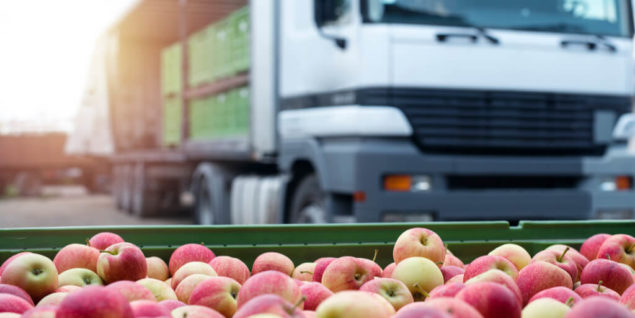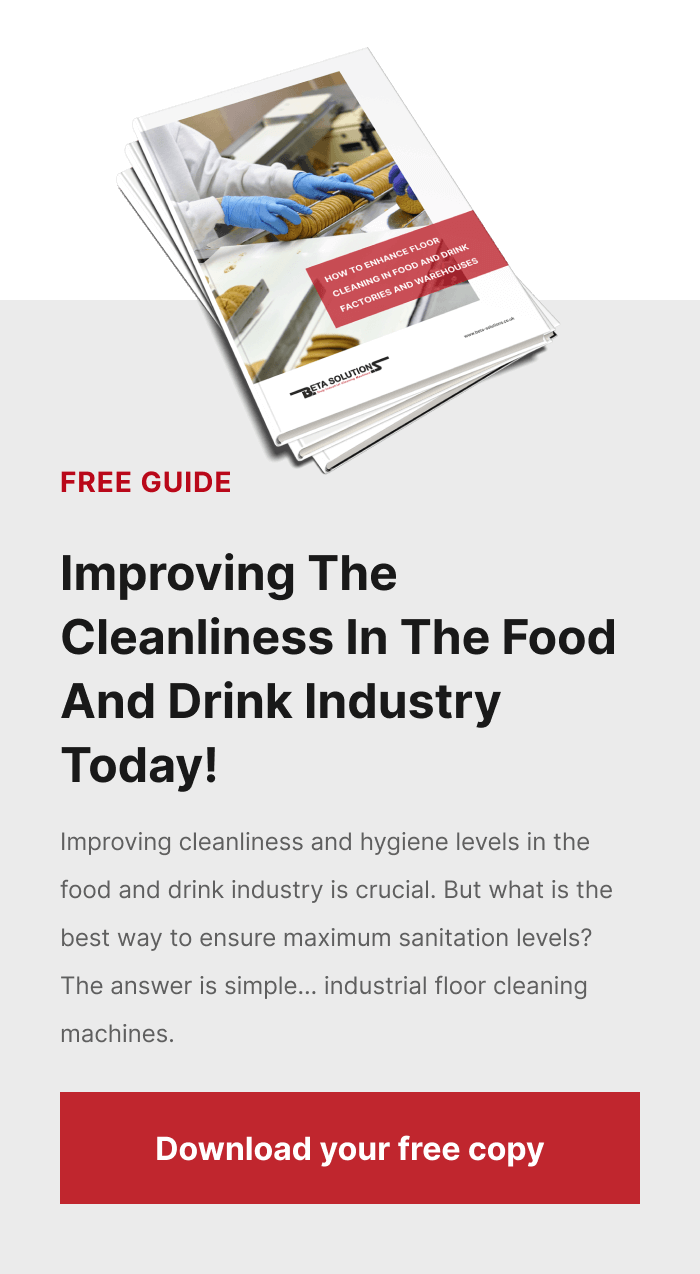
Food and beverage logistics play a vital role in the industry. Without this sector, shops wouldn’t be so well stocked up at all times. As customers, we take for granted shelves being full and expect it as a bare minimum. However, have you ever stopped and thought about just how much work goes into getting the products there?
It’s not as simple as deliveries being made to stores whenever stock is needed. There’s a whole procedure that requires stock to be managed and handled correctly in distribution centres before even reaching the shops. So, how exactly does the food and beverage logistics industry work?
This post will outline everything you need to know – from what it is, to how they operate and the typical lifecycle of jobs within the industry.
We’ll cover:
- What is Food and Beverage Logistics?
- How to Find the Perfect Supplier
- Transportation of Goods
- Storage, Handling and Processing
What is Food and Beverage Logistics?
While it may seem obvious, food and beverage logistics is the transportation, handling and management of food and drink products. Without effective food and beverage logistics, up and down the country, stores would have regular empty shelves, a lack of products and would gain a bad name for themselves.
Food and beverage logistics plays a big part in keeping the wider food and drink industry moving. Sure, shops and stores are where the majority of the money is raised and pumped into the industry, but products have to reach them effectively first before any sale can be made.
Effective food and beverage logistics are essential for businesses making strong relationships with suppliers and, in turn, their customers. Think about, if your supplier is constantly supplying your deliveries late, or if the products are in poor condition, you’re not going to be very happy, are you?
You need to find the right logistics business that’s proven to get the job done right, every time. Otherwise, it’s not only their reputation that will take a dint, but your customers won’t blame anybody else other than you. So, make sure that your business runs like clockwork with effective logistics – as well as amazing customer service, product and service offerings too.
How to Find the Perfect Supplier
The first stage of food and beverage logistics is finding the right supplier. This is a big decision, as it’s not likely to be a small commitment. You’ll be working with the supplier to transport your goods that you’ve worked hard to create. So, you want to ensure that they reach their designated destination in the perfect condition.
To find out whether the business you’re considering is up to the job, you should consider their experience. And not just how long they’ve been operating – the type of work that they’re used to carrying out. If they’ve worked with similar businesses to yours, they’re likely to do a better job than somebody who isn’t used to handling food and drink products.

What’s their reputation like? Are they known for providing a reliable service? Or, the complete opposite? Checking our customer testimonials and reviews of logistics businesses should be standard procedure before agreeing to anything. If they’re known for all the wrong reasons, then what are the chances that you’re going to get off on the wrong foot?
A reliable food and beverage logistics business should be:
- On-time.
- Well-established.
- Experienced in handling food and drinks products.
- The right price.
- Always happy to help – no matter what the request.
Transportation of Goods
As with any logistics industry, transportation of goods has a huge part to play. Collecting the goods from one place and moving them to another is massive within the food and drink industry – especially with so many pre-release processes in place for businesses to follow. With food and drink products, it’s never been more important for products to arrive in perfect condition.
Fresh produce will need to be transported in the right type of vehicle for it to arrive in pristine condition. For example, we can’t imagine a supermarket’s worth of milk still being consumable after being transported in an unchilled lorry, can you? Absolutely not. That’s why it’s important for food and beverage products to be transported properly.
If goods aren’t transported correctly, they can go off, become contaminated or simply not be fit for consumption. If any of the aforementioned scenarios happen, your business will have wasted time and money. Also, you’ll need to replace the products and your wastage levels will soar. All of these things aren’t good for your business and can be easily avoided by taking the right care when transporting goods.
Not only do goods need to be transported to stores, but they also need to be moved from their original location to their distribution centre too. So, they’ll be transported at various points in the product life cycle – each time is just as important as the rest.
Storage, Handling and Processing
Contrary to popular belief, logistics isn’t just about the transportation of goods from one place to another. While that is a main area of the industry, other areas of key focus should be the storage, handling and processing of the products.
Food and drink products tend to arrive at distribution centres not ready to be rolled out – they need to be processed so that they’re suitable to be in-store. That means workers will have to pick and pack orders accordingly, choosing the right products to fit into the right packages. Plus, products need to be handled correctly so that they’re not contaminated and unfit for human consumption.

Different food groups need to be handled differently – for example, meat needs to be treated differently to frozen goods. However, if the right protocols aren’t followed, team members can easily cut corners and prepare products in the wrong manner. If products then fall into the wrong hands, allergies can be triggered and people’s overall health may be at risk.
Ensuring that food and beverage logistics warehouses are kept as clean as possible is one of the main processes that need to be watertight. But is your cleaning process up to scratch? And do you have the right equipment in place to achieve industry-leading standards? Industrial floor cleaners can improve the overall hygiene, productivity and business efficiency.
Acquire the Right Equipment For Your Food and Beverage Logistics Business
So, as you’ve just seen, food and beverage logistics businesses play a vital part in the wider food and drink industry. They’re high-pressured environments, which means that time is money – so it’s important that these businesses run efficiently as possible. Otherwise, logistics businesses will start to see downtime creeping into their operations more commonly.
One process that must be nailed down to ensure efficiency is your cleaning regime. With the right equipment in place, you can achieve cleanliness and hygiene levels that you would have only dreamed of previously. One of the areas that needs addressing the most is the floor – unwanted bacteria and harmful germs are likely to grow in a dirty environment.
This can cause a threat to products and leave them needing to be disposed of. So, an industrial floor cleaning machine can massively help your business. But how? Well, for more information, we’ve created a free guide that includes everything you need to know and how they slot into your industry seamlessly.
Don’t hesitate and grab your copy today!












